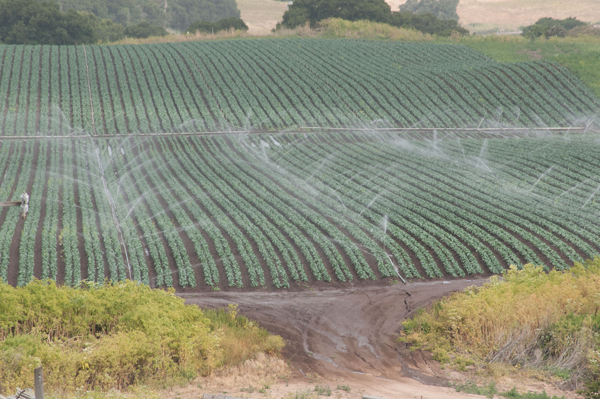A new study suggests that irrigation can cancel out – or even reverse – the growing risk of heat extremes caused by human-induced climate change.
The research carried out by ETH Zurich in collaboration with other universities and the US National Center for Atmospheric Research (NCAR) was published in Nature Communications. While it was already widely known that large-scale irrigation can significantly affect local climate, this was the first time researchers had attempted to measure its impact on global warming.
Led by ETH Zurich researcher Sonia Seneviratne, an international team of researchers used observational data and global climate simulations to isolate the climatic effects of irrigation from other natural and human climatic drivers, mainly greenhouse gas emissions.
The team consistently found that irrigation produced a cooling effect in warm extremes in southern Europe, north Africa, south Asia and the US. They found that the cooling effect was significant enough to cancel out the impact of global warming in these heavily irrigated regions, meaning there was little or no overall temperature change.
“In summary, we showed that irrigation expansion has regionally masked the historical warming of hot extremes from anthropogenic greenhouse gas emissions and all other climate drivers combined,” said Seneviratne.
The study found that in south Asia, irrigation reduced the likelihood of hot extremes by between 50-88%, particularly over the Indo-Gangetic plain.
“The climate that we experience in any particular location is due to many factors including, of course, the natural climate of that region, climate change due to greenhouse gas increases, and direct climate impacts due to human use of the land, especially irrigation,” said NCAR scientist and study co-author David Lawrence.
The cooling effect of irrigation currently benefits about one billion people worldwide, since heavily irrigated regions are often located in densely populated areas.
Even so, the researchers said it was questionable whether this irrigation-related cooling would continue to benefit future generations. A gradual diminishing in the availability of groundwater reserves and a drop in surface run-off due to the melting of glaciers worldwide may ultimately decrease water supply for irrigation in the long term, they said.



